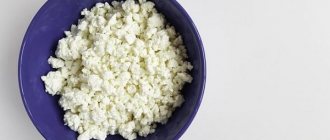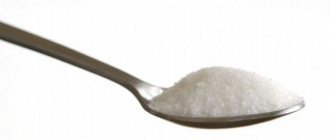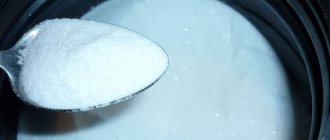Creatine has become one of the most popular sports nutrition supplements. Many studies have been conducted to determine safety, effectiveness and dosage for athletes, adults, children and older adults. And in this article we will look at how to take creatine correctly for maximum results.
The International Society of Sports Nutrition reports:
“(…) The most effective ergogenic nutritional supplements are currently available for athletes who increase their exercise intensity and want to build muscle mass. (…) Creatine monohydrate has been extensively studied and is considered a clinically effective form of creatine as a dietary supplement for building muscle mass and increasing the ability to handle intense exercise.”
Something needs to be cleared up. The most studied type of creatine is monohydrate. There are newer forms with improved properties. However, there is virtually no evidence that any of the new forms of creatine are more effective or safe than creatine monohydrate. This applies both when taken alone and in combination with other supplements. It is worth taking into account that the safety, effectiveness and regulatory status of monohydrate have been proven by numerous studies and personal experience of individual athletes. Other forms of creatine are less known and not as well studied.
Are you taking creatine? If you're into strength training, it should be part of your fitness supplement kit. The following are some reasons why:
- A good stimulant , increases strength, endurance and mobility. Helps withstand heavy loads and also prevents loss of strength during exercise.
- Improves the recovery process . Evidence shows that this supplement may reduce muscle damage and inflammation.
- Prevents damage . Some studies report that creatine supplements may reduce muscle damage, dehydration, and muscle cramps.
- Completes the rehabilitation process . Helps athletes and anyone else who takes this supplement when recovering from injuries.
When is the best time to take creatine?
There is a certain dosage, phases of use and interaction with organs, food and diseases. Therefore, we will first examine the basic concepts and then move on to dosages and administration schedule.
What is creatine?
It is a chemical compound formed by amino acids (the little building blocks that form protein). Located in muscle cells (95%) and brain (5%). Muscles use it as an energy resource. A certain amount of creatine accumulates in muscle tissue, which differs from person to person.
About 1-2% of creatine is excreted from the body in urine. To replenish and maintain creatine levels at normal levels, the body requires 1-3 g daily, depending on muscle mass. About half of the daily requirement can be obtained through a certain diet (red meat and seafood). The remaining amount is synthesized in the liver and kidneys. With a normal diet, which provides 1-2 g of creatine per day, the reserves of this substance in muscle tissue are about 60-80%.
Does creatine help you gain weight?
The body of all vertebrates contains nitrogen-containing carboxylic acid. It is synthesized by our body from amino acids. This substance is also called creatine and is involved in energy metabolism. When it comes to it as a sports nutrition product, this supplement causes a lot of controversy. Some consider it useless, other athletes are delighted with it, and others tell horror stories about harmful consequences and side effects.
Creatine is a sports nutrition whose main purpose is to increase endurance, strength and weight gain.
A regularly training athlete consumes more than 2g of creatine per day. With a balanced diet and properly selected training, this substance will be the main catalyst for muscle growth. Research shows that taking creatine can increase lean body mass by two to five kilograms per month. This effect is achieved in the following way: nitrogen-containing carboxylic acid acts as an energy drink and provokes an increase in strength and growth of muscle tissue.
Popular myths about creatine.
Creatine retains water in the body. There is an opinion that taking creatine has a whole list of side effects, including water retention in muscle tissue, as a result of which the body weight of the person taking this supplement increases. But this is a big misconception . Long-term studies have shown that taking creatine helps build lean muscle mass, so water retention has nothing to do with it. The bottom line is that increasing the amount of nitrogen-containing carboxylic acid in the diet increases protein synthesis. As a result, muscles grow.
Completely useless. Yes, not all athletes notice a positive effect from taking creatine . This can directly depend on both training and a person’s diet. This type of sporpitis is really effective for pumping, this has been proven by experience and scientific research. But taking this supplement does not show any results in swimmers and marathon runners.
An expensive product is better than a cheap one. Not a fact, you need to look at the composition. But often the difference between an expensive product and a cheaper one lies in the purity of the supplement. A higher degree of purification ensures better absorption.
New developments work better than old ones. Creatine monohydrate powder and all the varieties developed in recent years work the same way. There is no scientific evidence yet that effervescent or liquid forms are absorbed better and provide a greater positive effect.
You can get creatine from your regular diet. Beef, cod, salmon and herring have the highest content of nitrogen-containing carboxylic acid. During heat treatment, the substance will be partially destroyed. You will get no more than 1 gram of creatine per day from your regular diet.
Creatine only works if you take it with grape juice. Half-truth. Sugar from grape juice increases insulin levels in the body, and insulin enhances the effect of taking creatine.
You need to take the supplement in cycles. There is no justification or scientific evidence that cyclic intake has a greater effect than constant consumption. Taking creatine monohydrate powder does not affect your body's synthesis of nitrogenous carboxylic acid.
To build muscle mass, take creatine along with a protein shake after training. There is no particular evidence that this is how the supplement is best absorbed, it’s just convenient.
For those who want to learn more about what time of day you should drink creatine and other sports nutrition products, we have prepared an article.
Thus, in most cases, creatine helps to gain weight , has no side effects and provides an increase of two to five kilograms per month of lean muscle tissue, as it increases strength and provokes increased protein synthesis in the human body.
The role of creatine
During training, the body uses creatine as an available energy resource. To maintain and increase the effectiveness of exercise, the maximum amount of creatine reserves is required. Nutritional supplements help replenish the required amount.
When fully stored, muscles receive an immediate source of energy, resulting in increased strength, endurance and activity.
Post-workout creatine helps reduce inflammation, cramps, and prevent muscle tissue damage.
Because it retains water in the cells, muscles appear fuller. This has nothing to do with strength, but with water conservation. Please be careful. Strength requires training. Creatine is not a solution and will not help you get stronger without exercise.
Who can't do without creatine?
Creatine monohydrate and coffee can easily be classified as the most popular and frequently consumed products. If everything is clear with the invigorating drink, then “bodybuilder’s acid” requires additional consideration.
Creatine is relevant in the following cases:
- For athletes. The substance is suitable for people who engage in any kind of sports. The supplement allows you to maintain the highest possible level of rapid energy supply to the body.
- For gaining muscle mass. Intensive muscle training while taking acid allows you to generate faster muscle growth. At the same time, the new fibers will be distinguished by their particular quality and positive biological characteristics.
- For vegetarians. Creatine can be used as a supplement that completely meets the human body's need for “pure” protein.
- To combat excess weight. Losing “fat ballast” is only possible if you work intensively in the gym. In this case, creatine works as an energy booster to prolong workouts.
When is the best time to take creatine?
There are two stages to taking creatine:
Loading phase
At this stage (during the loading phase), creatine reserves in muscle tissue increase. The most effective way is to consume approximately 0.3 - 0.8 g per kg of body weight, 4 times a day, for 5-7 days.
For example:
If you weigh 70 kg, you need to consume at least 0.3 g per day.
70 x 0.3 = 21.
The daily norm is 21 g. This amount must be divided by four.
21 / 4 = 5,25.
5.25 gr at a time .
The amount per kg depends on the intensity of the workout, muscle mass and other factors. If your workout is intense, you will need 0.8 g per kg for the desired results.
Maintenance phase
It's about preserving supplies. Once the saturation phase is completed, you need to maintain the amount of creatine in the body by taking 3-5 g per day. Some studies suggest that heavier athletes should take 5-10 g/day.
The combination of these phases is the fastest method of increasing the amount of creatine in the body.
Creatine supplements allow you to gain weight quickly by retaining fluid in muscle cells. After this, you can train harder and more effectively.
Reception on rest days
Creatine intake after the loading phase remains the same (3 g per day), regardless of whether you train or not for 4-6 weeks. Next, you will have to take a break of at least 2 weeks so as not to have a negative impact on the body’s own production of creatine.
What is the essence of the problem anyway?
Creatine and caffeine are two active ingredients that are often included in pre-workout supplements and fat-burning formulations. However, their compatibility has not yet been fully studied. Over the past few years, experts have been actively working on this, but there is no final conclusion yet. Although, on the Internet you can find many articles where it is not recommended to drink coffee at the same time as creatine-containing supplements. It is paradoxical that many athletes know nothing at all about such studies and successfully violate the recommendations.
Previously, it was believed that creatine and caffeine were two independent elements that had independent effects on the athlete’s body. Indeed, as a result of taking these supplements, you can achieve a powerful surge of strength, energy, increase productivity, and so on. Moreover, for some time a combination of these two components was preferred.
What is the essence of each element? Creatine promotes the release of a large amount of energy into the body, improves the production of ATP, makes the athlete more resilient, and suppresses the production of lactic acid (its accumulation can lead to severe muscle pain). In turn, caffeine is a powerful stimulant that only indirectly affects the athlete’s phosphogenic system. It turns out that these two components have their effect on the body, but they pursue one goal - increasing the effectiveness of training and faster growth of muscle mass. Why is their compatibility in question?
What should you take with the supplement?
It is very important to choose the right time to take creatine and what you take it with. Eating a large amount of carbohydrates (about 70-100 g) with each meal increases the effect of creatine due to the stimulating effect of insulin. It is best to take supplements with a meal or with a carbohydrate-rich snack. In addition, this substance is useful to use not only during training, but also on rest days.
Important: when should you not take creatine supplements?
Pregnancy and breastfeeding: There is currently no reliable information about how safe it is for pregnant and breastfeeding mothers to take creatine.
Kidney and Liver Diseases: People suffering from kidney and liver diseases (such as kidney failure and hepatitis) should not use this dietary supplement as creatine may aggravate the condition.
Caffeine may reduce the beneficial effects of creatine.
What is better to combine taking Creatine with?
You must understand that by taking Creatine alone, you are unlikely to get high-quality results. Creatine should be part of a comprehensive sports nutrition regimen, and in particular:
- Vitamin-mineral complex;
- Protein;
- BCAA.
And that's your minimum. For more effective and intense workouts, you can add a pre-workout supplement. It will allow you to tune in to work mentally and give you a couple more useful functions, such as pumping and increasing productivity.
We advise you to read about the correct use of pre-workout at the link:
You can find out how to take sports nutrition with a guarantee of results here.
For men, there is an opportunity to expand their natural capabilities with the help of a testosterone booster. This supplement is completely natural and allows you to enhance the natural production of this hormone without disrupting your overall hormonal balance.
The best proteins
Killer Labz Predator-Pro (Anabolic Formula!)
Price: 3255.00 rub.
Card Product
Condemned Labz Commissary Whey Protein
Price: 3060.00 rub. 2870.00 rub.
Card Product
Inspired Nutra PROTEIN+ Collagen & Probiotics
Price: 3070.00 rub.
Card Product
Go to the Protein category »
The best BCAA
Killer Labz Brute BCAA
Price: 3350.00 rub.
Card Product
Blackstone Labs ResurGence + Nootropics
Price: 2790.00 rub.
Card Product
Core Labs X Amino Power
Price: 3290.00 rub.
Card Product
Go to BCAA category »
The best vitamins
Infinite Labs Women's Multivitamin
Price: 1690.00 rub.
Card Product
Blackstone Labs Multi
Price: 2100.00 rub.
Card Product
NOW Vitamin D-3 5000 ME (120 capsules)
Price: 1150.00 rub.
Card Product
Go to the category Vitamin and mineral complexes »
The best pre-workout supplements
Killer Labz Noxious
Price: 2920.00 rub.
Card Product
Outbreak Nutrition Pathogen
Price: 2750.00 rub.
Card Product
Phase One Nutrition Brain Blitz
Price: 3091.00 rub.
Card Product
Go to the Pre-workout complexes category »
The best test boosters
Killer Labz Terminator Test
Price: 2760.00 rub.
Card Product
Blackstone Labs Multi
Price: 2100.00 rub.
Card Product
Infinite Labs Pro Tribulus
Price: 1780.00 rub.
Card Product
Go to the Testoboosters / PCT category »











